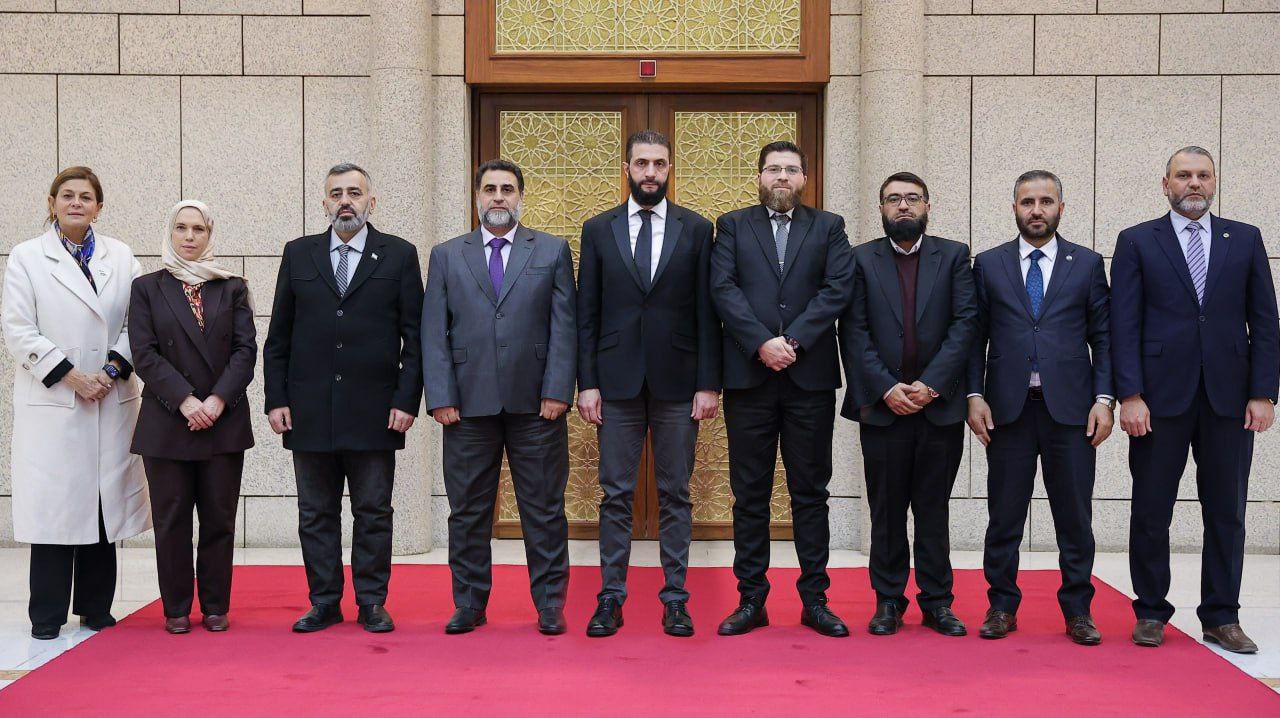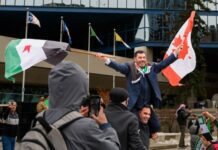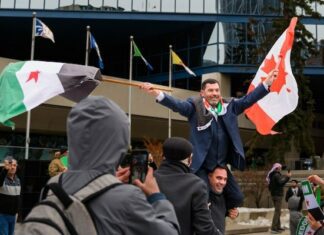
The newly formed Preparatory Committee for the Syrian National Conference is facing scrutiny as ambiguity persists over its structure, selection process, and objectives. The committee, announced by the Syrian presidency on Wednesday, is tasked with organizing a national dialogue that will bring together representatives from various political, social, and cultural groups to shape the country’s transitional phase. However, key details—including the conference’s date, agenda, and participant selection criteria—remain unclear.
The seven-member committee consists of five men and two women: Hassan al-Daghim, Maher Alloush, Muhammad Mustat, Youssef al-Hajr, Hind Qabwat, Huda al-Atassi, and Mustafa al-Musa. The committee’s mission is to engage with political factions nationwide to determine participation in the national conference. Sources in Damascus indicate that discussions on selection mechanisms are ongoing, with no final decisions made.
Political & Regional Diversity in Committee Membership
Committee members come from diverse political and regional backgrounds. Al-Daghim, an expert in Islamic studies, previously served in the Moral Guidance Department of the Syrian National Army (SNA). Alloush, a writer and researcher, played a mediating role in factional disputes. Mustat specializes in human resources and leadership development. Al-Hajr was formerly the director of the political office of Hayat Tahrir al-Sham (HTS), while al-Musa held leadership positions in the Syrian Salvation Government (SSG) in northwestern Syria. Qabwat, a civil activist from Damascus, and Atassi, an architect from Homs, bring experience in humanitarian work and social advocacy.
The Syrian presidency has described the dialogue conference as a historic opportunity to build a post-Assad Syria through inclusive political engagement. The conference is expected to establish a constitutional framework for governance during the transitional period, which will lead to the drafting of a new permanent constitution and, ultimately, presidential and parliamentary elections.
Uncertainty Over Kurdish Representation
One of the most pressing questions surrounding the conference is the role of Syria’s Kurdish factions. Tensions between the PKK-aligned Syrian Democratic Forces (SDF) and the new administration have stalled discussions on northeastern Syria’s future. While the Kurdish National Council (KNC) is likely to be invited, its stance on the new government remains unclear. Meanwhile, the Democratic Union Party (PYD), which dominates the SDF, has been accused of aligning too closely with the Kurdistan Workers’ Party (PKK), a designated terrorist organization, complicating its potential participation.
Experts Caution Against Rushed Conclusions
Political analysts remain cautious about assessing the preparatory committee’s effectiveness. Hazem Nahar, a Syrian political researcher, stated in an interview with The New Arab that “it is too early to judge the committee’s impact,” noting that its powers and selection criteria for participants are still undetermined. Nahar stressed the importance of ensuring “fair representation of Syria’s political, ethnic, and social components” and suggested that individuals, rather than political factions, should be invited to participate.
Another researcher, Abbas Sharifa, echoed these concerns, emphasizing that the committee must establish “clear, strict criteria for selecting conference members” to ensure inclusivity and legitimacy. He argued that regional, political, and religious diversity should be prioritized to reflect Syria’s complex societal makeup.
US Calls for Political Transition Free of “Foreign Influence”
As Syria moves toward its national dialogue, the United States has urged a “comprehensive political transition” that prevents “foreign interference.” In a statement marking the International Day for the Prevention of Violent Extremism, the US Embassy in Damascus highlighted the need for a political process that ensures Syria does not become a “source of international terrorism” or fall prey to external manipulation. The statement underscored Washington’s position that Syria’s transition must be guided by its people, rather than by foreign actors with vested interests.
“The Syria We Have Dreamed Of”
Despite uncertainties surrounding the conference’s organization, many Syrians view it as a crucial step toward establishing a new governance structure after decades of authoritarian rule. As the preparatory committee begins its consultations, the success of the initiative will depend on its ability to foster an inclusive, transparent, and representative process that meets the aspirations of the Syrian people.
Committee member Huda al-Atassi expressed optimism about the national dialogue process, describing it, in a post on her X account, as an opportunity to address Syrians’ demands for justice and dignity. “Real change begins when society and decision-makers engage in meaningful dialogue,” she said. “We will make every effort to build the Syria we have dreamed of.”








